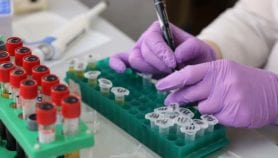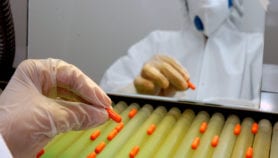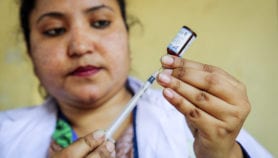By: Brett Cherry
Send to a friend
The details you provide on this page will not be used to send unsolicited email, and will not be sold to a 3rd party. See privacy policy.
New intellectual property (IP) strategies must be adopted if developing countries are to benefit from innovations in biotechnology, says a group of international experts.
The IP system for biotechnology lags behind other industries in making its products and research more accessible, according to an expert group from The Innovation Partnership (TIP), a non-profit organisation funded by the Canadian government and organised through McGill University, Canada.
Richard Gold, president of TIP and chair of the expert group, says biotech companies and governments worldwide will have to let go of their "old IP approach" if they are to use their research to address disease and hunger in developing countries.
The study finds that companies fear developing countries do not respect IP laws, while developing countries worry that the developed world is expanding its IP rights without regard for their needs.
"There is certainly this view that the patent system being imposed on low- and middle-income countries is basically a transfer of rent from developing countries to high-income countries with very little return," says Gold.
"We have internationalised high-income country IP laws and imposed them on lower- and middle-income countries for whom the system we have developed for ourselves may not work."
In order to bridge this mistrust, the study recommends ‘patent pools’ — consortiums of biotech companies, nongovernmental organisations, manufacturers and national governments that share patents — to deliver medicines, foods and other products to people in developing countries.
For example, UNITAID — an international drug purchase facility — operates a patent pool to formulate medicines specifically for developing countries to manufacture and distribute at a low price.
The authors say patent pools would licence production, of a drug for instance, out to manufacturers who would be overseen by an independent technology assessment organisation to ensure standards of new biotech products from developing countries.
And new IP strategies like patent pools could also assist technological development in the developing world, says Gold. "There is a lot of technology being developed in low- and middle-income countries, but they don’t have access to the financing and business models to bring that technology forward."
To make medicines more accessible, the authors recommend pharmaceutical companies make substantial investments in public-private partnerships that will make the knowledge behind those medicines available in the public domain so countries can develop their own.
The report also recommends collaboration between universities from high- and low-income countries, especially developing postgraduate programmes enabling students from developing countries to focus on research in their home countries.
"This has the benefit of allowing these researchers to focus on problems at home without abandoning them, but also teach their community and build up an infrastructure in those countries so they can stay at home and continue to address the problem," Gold told SciDev.Net.













